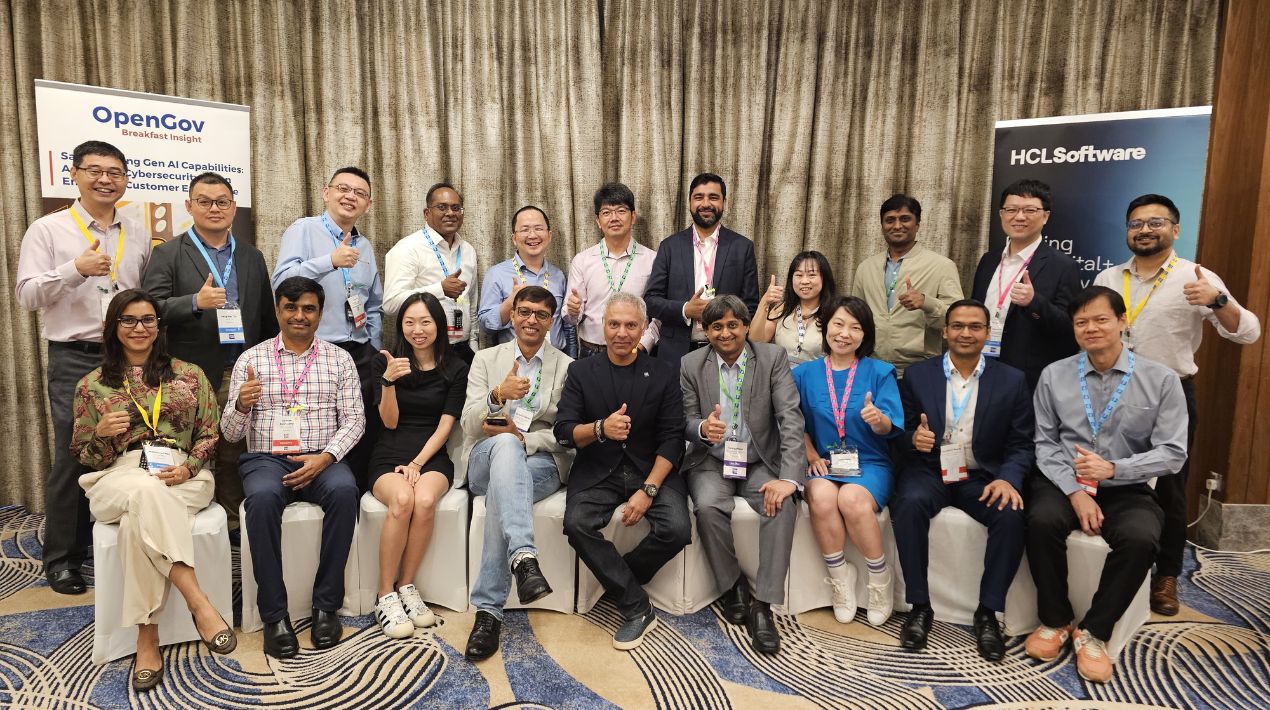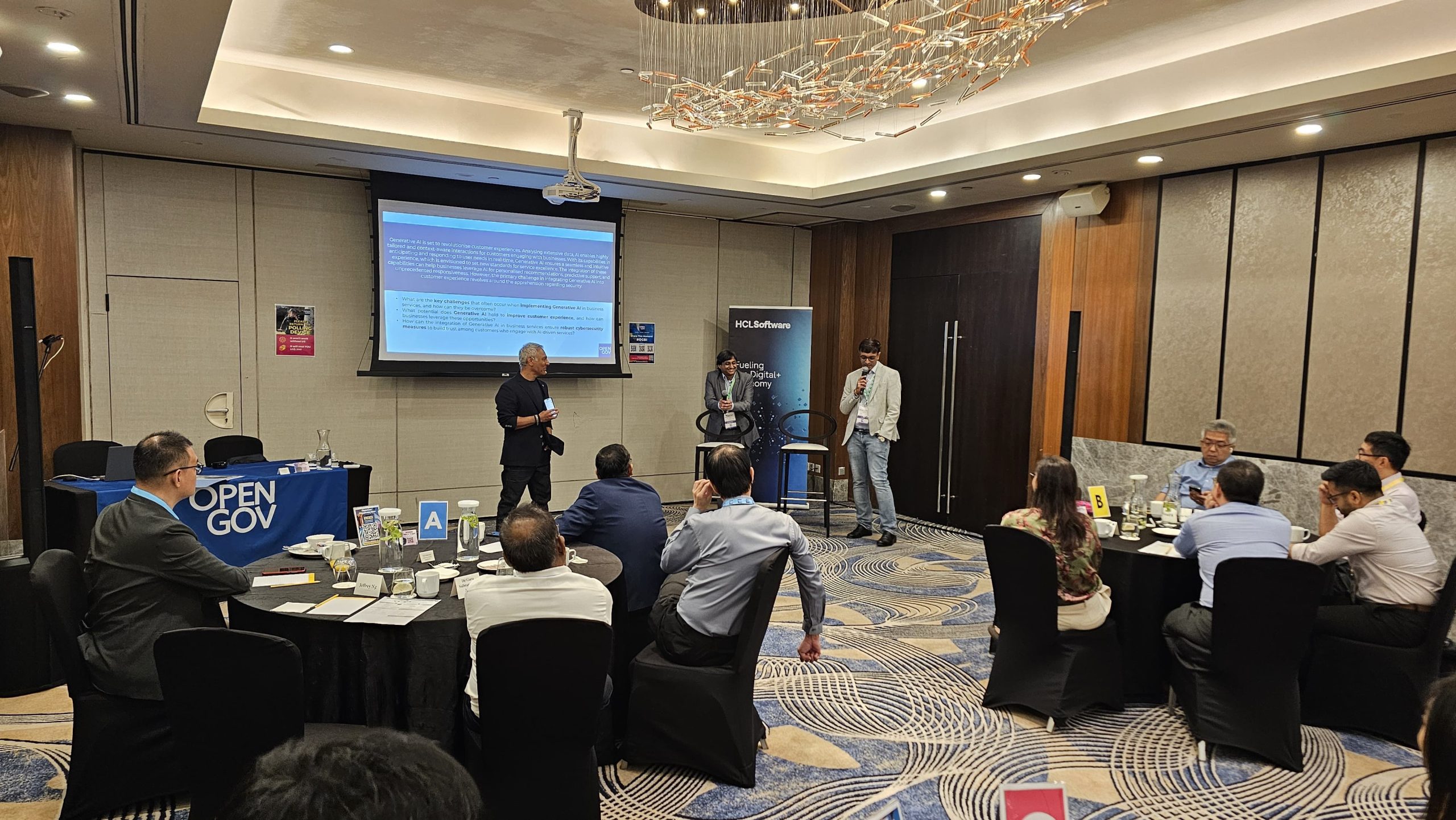
|
Getting your Trinity Audio player ready...
|
In the dynamic realm of cybersecurity threats, organisations face the formidable challenge of recognising, assessing and addressing system vulnerabilities. This underscores the essential need for adopting a pragmatic prioritisation framework.
Existing vulnerability assessment processes within organisations often offer less-than-optimal resource allocation and heightened vulnerability to security risks with substantial consequences and, as such, require a systematic overhaul.
Amidst the surge in digital business transformation, organisations face significant changes in their daily IT operations. This transformation brings about a proliferation of new applications, services, and tools, thereby escalating the complexity of digital assets. In the current landscape of helpdesk operations, various challenges pose a threat to overall productivity.
From an IT operational standpoint, service desks bear a significant burden in addressing increasing queries, requests, incidents, service tasks, and change request tasks. In instances where automation is present, it may be confined to silos, lacking reusability and standardisation across teams.
Additionally, a robust knowledge management system is necessary to avoid the loss of valuable tacit knowledge exacerbated by high employee attrition rates. This dependence on human expertise introduces inconsistencies and variabilities in operational quality due to potential human errors.
Organisations require efficient mechanisms to promptly address vulnerabilities, yet there exists a significant misalignment in the goals, tools, and processes between security and IT operations. This misalignment results in delays in resolving critical vulnerabilities, thereby posing a risk to the overall security of the enterprise.
To overcome these challenges, it is essential to implement a resilient and flexible vulnerability prioritisation framework. This framework should include thorough criteria, account for resource limitations, integrate real-time threat intelligence, utilise dynamic assessment methods, consider business impact, and foster collaboration across departments.
Under these circumstances, the helpdesk ecosystem demands advanced AI solutions to mitigate delayed response times, relieve agents of repetitive tasks, and guarantee an optimal customer experience. The goal is to establish a proactive and risk-aware approach to vulnerability management, aiming to minimise exposure to potential security threats.
The OpenGov Breakfast Insight at the Voco Orchard Singapore on 22 February 2024, explored cutting-edge security capabilities and recent AI-powered IT automation to enhance customer experience. IT experts and decision-makers were invited to gain insights into fortifying the digital realm against cyber-attacks.
Opening Remarks

Singapore, as a prominent digital nation and technological force in Asia, stands out with its resilient and vibrant IT sector. The country’s strategic geographical location, business-friendly ecosystem, and dedicated initiatives for digital transformation have enticed numerous global tech companies and startups to establish their operations in Singapore. Through its Smart Nation Initiative, Singapore has demonstrated a pivotal role in fostering connectivity and innovation to enhance various aspects of society.
Mohit Sagar, CEO and Editor-in-Chief of OpenGov Asia underscores that in today’s complex technology landscape, success relies heavily on digital transformation, with a strong emphasis on security. Whether reinforcing cybersecurity or augmenting infrastructure with artificial intelligence (AI), the goal is to prevent organisations from incurring irreversible damage. AI facilitates thorough system scans, early threat detection, and more efficient streamlining of security tasks compared to human counterparts.
Mohit explains that addressing vulnerabilities and implementing efficient patch management is crucial for safeguarding organisations against cyberattacks. Studies reveal that leaving well-known vulnerabilities unpatched and delaying remediation heightens cyber risks, increasing the likelihood of data breaches and ransomware attacks.
“Utilising AI enables support organisations to offer pertinent suggestions, recommendations and solutions during customer interactions, enhancing response accuracy and efficiency,” elaborates Mohit. “This enhances the help desk experience, leaving customers satisfied with the prompt assistance they receive.”
In the financial sector, considered one of the most critical industries in a country, maintaining resilience during the transition to the digital landscape is imperative. Mohit believes that prioritising customer experience in the Financial Services Industry (FSI) is crucial, given its direct influence on customer satisfaction and loyalty. In an era with numerous consumer choices, providing a seamless and positive experience is essential for retaining existing clients and attracting new customers.
The key to gaining a competitive edge lies in the effective collection, breakdown and comprehension of customer data. AI algorithms are adept at analysing vast amounts of customer data, deciphering individual preferences and behaviours, and empowering FSIs to enhance the overall customer experience.
By harnessing the power of AI to comprehend, shape, customise and optimise the customer journey, financial service institutions (FSIs) can provide individualised offerings like tailored product recommendations and customised financial advice.
AI’s impact extends to customer interaction with the deployment of chatbots and virtual assistants. These AI-powered entities offer instant and efficient customer support, addressing queries, managing routine transactions, and guiding users through various processes.
Such tools, solutions and platforms not only ensure a smooth and seamless experience for customers but also showcase the transformative potential of AI in enhancing service delivery, personalisation and safety in an increasingly digital financial sector.
The OpenGov Breakfast Insight will highlight Singaporeans’ commitment to merging proven tradition with cutting-edge technology to navigate the dynamic digital realm more effectively. This shift reflects a forward-looking approach, embracing the opportunities presented by the ever-evolving cyber landscape.
“Singapore’s pioneering efforts in smart governance, the digital economy and citizen experience reflect a paradigm shift in approach to the digital era. The global community stands to learn from its journey,” Mohit shares.
Welcome Address

Saranga Rajan, the Associate Vice President & Head of BFSI Endpoint Security at HCL Software, warmly welcomed the participants, speakers, and OpenGov Asia to the valuable discussion.
Digital security and digital transformation are intricately linked, with one significantly influencing the other. As organisations leverage advanced technologies to enhance operations, streamline processes, and improve overall efficiency, the need for robust digital security becomes paramount.
Moreover, as systems become more interconnected and reliant on digital platforms, ensuring the confidentiality, integrity, and availability of data becomes a critical aspect. In this transformative journey, the critical role of digital security in the evolving digital landscape cannot be overstated
Collaboration between diverse entities, spanning both the private and public sectors, is essential for fostering knowledge exchange and addressing the challenges and opportunities presented by the ever-changing digital ecosystem. This collaborative approach recognises the interconnected nature of the digital landscape and emphasises the need for a unified front in navigating its complexities.
“Partnerships are vital in confronting today’s issues amidst technological advancements,” Saranga believes. “Collective efforts across sectors are crucial for developing robust cybersecurity frameworks, policies, and strategies that can effectively mitigate risks and bolster the overall resilience of the digital ecosystem.”
Singapore has placed a significant emphasis on enhancing the cybersecurity resilience of its banks and financial institutions (BFSI). The industry has introduced “second-generation” cyber regulations to deal with the evolving landscape of cyber threats. These regulations signify a proactive response to the escalating challenges, underlining the importance of cyber resilience and the timely reporting of incidents within the financial sector.
Saranga shares that HCLSoftware’s expertise in delivering enterprise software solutions, coupled with a focus on driving the digital economy and addressing transformative client requirements through AI and Automation, positions the company as a key player in fortifying organisations against cyberattacks.
Acknowledging the heightened vulnerability within the Financial Services Industry (FSI), HCLSoftware is dedicated to addressing the need for robust resiliency and stands ready to provide tailored solutions to address these specific challenges.
With a commitment to cutting-edge technologies and comprehensive security measures, HCLSoftware aims to empower FSI organisations with the capability and adaptability to navigate and mitigate cyber threats effectively.
The importance of adapting security measures to the evolving threat landscape and the necessity for continuous improvement in cybersecurity protocols must be stressed. By remaining vigilant and responsive to emerging threats, the financial sector can proactively fortify its defences and maintain a resilient posture against cyber adversaries.
In this VUCA environment, next-gen AI becomes a powerful ally in fortifying cyber resilience by offering enhanced threat detection, rapid response, and continuous adaptation to emerging cyber threats.
Saranga was confident that the discussions and insights shared would significantly contribute to enhancing digital security practices and strategies. These knowledge-sharing forums play a pivotal role in shaping the future trajectory of digital security, particularly within the dynamic realm of digital transformation. They create an environment where industry experts, thought leaders, and practitioners can exchange valuable perspectives, innovative ideas, and best practices.
“Cyber resilience can be enhanced by adopting a holistic and proactive approach that combines technological solutions, employee education, and collaboration within the industry,” concludes Saranga.
In Conversation With
Mohit, alongside Dr Chandra and Saranga, looked at strategies to bolster cybersecurity that would ultimately enhance consumer satisfaction. They explored innovative techniques, best practices and industry insights to create a resilient framework that not only safeguards digital assets but also fosters a heightened sense of trust and satisfaction among consumers.
Addressing the dynamic challenges within the cybersecurity landscape yields valuable insights and practical solutions. These outcomes serve as a guide for organisations, offering implementable measures to ensure a secure and satisfying experience for consumers in the ever-changing digital environment.

In the rapidly evolving landscape of massive digital technology transformation, Saranga concurs that addressing vulnerabilities in cybersecurity must be an ongoing priority. Strengthening these aspects not only provides security for the organisation’s systems but also enhances consumer satisfaction.
Through the analysis of extensive data, AI empowers highly tailored and context-specific interactions for customers engaging with businesses. GenAI, with its capacity to anticipate and respond to user needs in real-time, ensures a seamless and intuitive experience, setting new standards for service excellence.
While integrating these capabilities empowers businesses to receive personalised recommendations, predictive support, and unprecedented responsiveness, the primary challenge revolves around security concerns when incorporating GenAI into the customer experience.
Dr Ashish Chandra, Head of Technology Innovation and Group Functions at Standard Chartered Bank, emphasised the vulnerability of Singapore’s FSI sector to a range of cybersecurity threats. This susceptibility is attributed to the growing digital and technological integration within the industry.
In 2023, key security challenges within the Financial Services industry included:
- Cloud-based attacks: The cloudification of FSI systems has resulted in risks from malware and advanced threats.
- Island hopping: Cybercriminals are increasingly targeting the interconnectedness of the financial system and turning to island hopping campaigns, which involve infiltrating an organisation’s more vulnerable third parties
- Remote work risks: The shift to remote work has introduced new risks for FSI companies, such as implementing safeguards in outsourcing arrangements, security controls, and cybersecurity measures for remote working infrastructure, including personal devices.
To address these challenges, the Monetary Authority of Singapore (MAS) and the Association of Banks in Singapore (ABS) have issued guidelines on managing remote work risks for businesses in the FSI. These guidelines emphasise the importance of implementing safeguards in outsourcing arrangements, including personal devices.
Within the business context, leveraging cutting-edge technologies offers various avenues to achieve seamless integration and streamline workflows, ultimately resulting in more efficient and cost-effective operations. Some of the key approaches encompass:
- AI and ML for Process Optimisation: Chatbots enhancing customer support and predictive analytics optimising supply chain management are examples of how AI and ML can play a pivotal role in streamlining workflows and enhancing efficiency
- Digital Adoption Platforms (DAPs): Implementing DAPs can help businesses streamline customer management, ensure smooth digital transformations, and protect data assets, ultimately leading to greater scalability and efficiency
- Cloud, AI, and Automation for Operational Resilience: Leveraging cloud, AI and automation technologies can improve business resilience, operational efficiency, and client engagement, ultimately leading to optimal business outcomes
“By harnessing the power of interconnected emerging technologies, businesses can unlock unprecedented opportunities for growth, efficiency, and competitiveness,” he says. “The integration of technologies such as AI, blockchain, and the IoT forms a synergistic ecosystem that not only streamlines operations but also paves the way for innovative business models.”

Saranga Rajan, Associate Vice President & Head of BFSI Endpoint Security at HCLSoftware, recognises that AI empowers businesses to enhance decision-making through various avenues.
Firstly, real-time tracking and improved prediction capabilities, driven by AI technologies, facilitate faster and more informed decision-making by providing insights into various scenarios based on real-time data.
Another crucial aspect where AI excels is Big Data Analysis, enabling the analysis of vast datasets to identify trends, patterns, and insights. This capability empowers businesses to make informed decisions that drive sustainable growth and maintain a competitive edge in dynamic market landscapes.
Furthermore, AI facilitates scenario modelling and simulations, predicting outcomes for different choices. This capability allows businesses to evaluate alternative strategies, optimise resource allocation, and minimise risks associated with decision-making.
In strategic planning, AI’s proficiency in processing extensive data sets and identifying trends significantly enhances strategic preparation, enabling businesses to formulate data-driven decisions and develop winning strategies.
Additionally, AI contributes to personalised customer interactions, optimising inventory management, and providing data-driven insights. It enables businesses to concentrate on strategic decision-making and foster growth by automating processes, reducing manual work, and increasing efficiency.
“By embracing intelligent automation and adopting a strategic approach that prioritises efficiency, innovation, and cybersecurity, businesses can achieve seamless integration, streamlined workflows, and optimal business outcomes,” Saranga is convinced. “This can be achieved by investing in the right technologies, fostering a culture of innovation, and striking the right balance between AI insights and human expertise.”
“With its expertise, HCLSoftware can enhance cybersecurity and elevate customer experience by leveraging AI, automation, and enterprise security. HCLSoftware integrates AI-powered cybersecurity measures to detect and respond to cyber threats in real-time, embodying a proactive approach to safeguarding digital assets,” elaborates Saranga. “HCLSoftware analyses vast datasets to identify trends and patterns, facilitating informed decision-making for sustainable business growth.”
HCLSoftware offers cloud-based solutions that optimise cloud usage, accelerate innovation, and enhance agility at scale, resulting in a superior customer experience. Through digital transformation solutions, the company aids businesses in adapting to the digital age, improving operational efficiency, deepening client engagement, and enhancing overall business resilience.
 “I believe that if companies prioritise cybersecurity, innovation, and customer experience, HCLSoftware can help ensure seamless integration, streamlined workflows, and optimal business outcomes,” Saranga opines. “This strategic approach involves investing in the right technologies, fostering a culture of innovation, and finding the optimal balance between AI insights and human expertise.”
“I believe that if companies prioritise cybersecurity, innovation, and customer experience, HCLSoftware can help ensure seamless integration, streamlined workflows, and optimal business outcomes,” Saranga opines. “This strategic approach involves investing in the right technologies, fostering a culture of innovation, and finding the optimal balance between AI insights and human expertise.”
Closing Remarks
Saranga expressed his gratitude for the active participation, as participants shared their experiences and ideas, enriching the discussion. Bringing together diverse entities to discuss the issue of cybersecurity vulnerabilities needs such collaborative efforts. Involving both the public and private sectors, along with other pertinent stakeholders, to collectively address challenges is vital for ensuring a safe digital landscape.
He acknowledges that cyberattacks know no boundaries and can impact various sectors of life, ranging from government to business and the general public, and as such, the imperative for collective efforts to build robust cybersecurity resilience remains.
Saranga encouraged all parties to actively share information about cybersecurity threats and their experiences in dealing with them. By fostering an environment of open communication and collaboration, communities can learn from each other’s insights and swiftly identify and respond to potential cyberattacks.
This collective sharing of information plays a crucial role in building a united front against evolving cyber threats, promoting proactive measures, and strengthening overall cybersecurity resilience.
A common understanding can lead to several concrete steps that can be taken to enhance cybersecurity:
- Strengthening regulations governing data protection and information security
- Increased investment in innovative and effective cybersecurity
- Capacity, capacity building through training and development of human resources in cybersecurity
Highlighting the importance of cybersecurity awareness across all layers of society, from ordinary internet users to IT professionals and decision-makers at the executive level, Saranga emphasises that a holistic approach is key to creating a secure ecosystem against cybersecurity threats.
This inclusive awareness strategy ensures that individuals at every level understand their role in maintaining cybersecurity, contributing to a collective and proactive defence against evolving threats.
Saranga is convinced that any nation can attain a higher level of cybersecurity through strong collaboration and collective commitment. He foresees that forums like the one at hand will continue to serve as platforms for exchanging ideas and strategies, allowing people to collectively address the complex challenges posed by the continually evolving digital world.
“This is an era where inclusivity is a currency, and its value extends across various domains, from business and technology to social and cultural realms,” he explained. “Diversity and partnership foster innovation and better decision-making and inclusive approaches are more adaptable, creative and better reflect varied markets.”
















